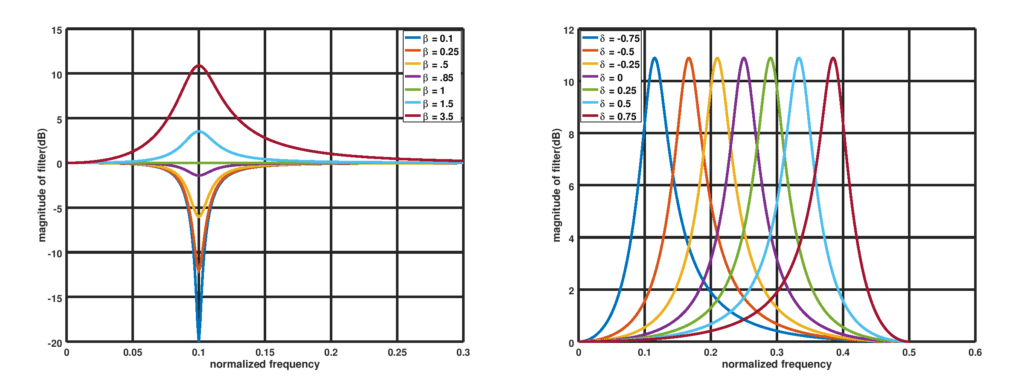Tunable digital equalizers are used to adjust gains at specific frequencies whiles maintaining the gains at all other frequencies. Second order equalizers can be used for real time signal enhancement procedures to improve speech quality adjusting the magnitude responses of specified frequencies.
Consider a first order analog transfer function in Laplace domain:
The transfer function can be rewritten as:
where . Then, using the bi-linear transformation of
, the realized digital filter becomes:
where where
is the integration step of the trapezoid rule.\\Now suppose we make a further transformation of
where with
being the desired center frequency of the bin to be adjusted. This will lead to

Figure 1: Low frequency gain adjusted by varying with
on the left and varying
with
on the right
VOCAL Technologies offers custom designed solutions for beamforming with a robust voice activity detector, acoustic echo cancellation and noise suppression. Our custom implementations of such systems are meant to deliver optimum performance for your specific beamforming task. Contact us today to discuss your solution!